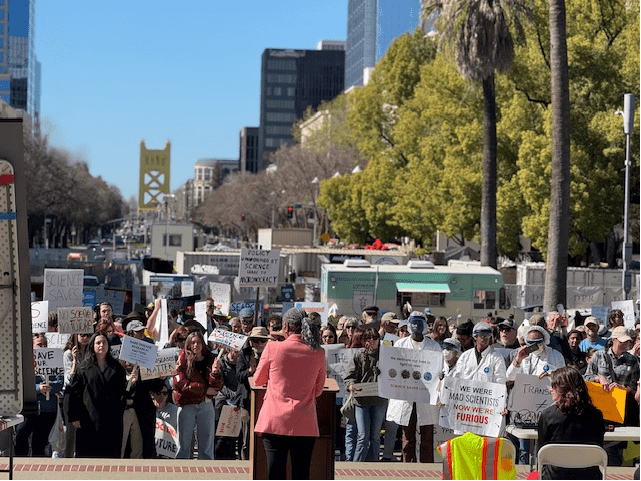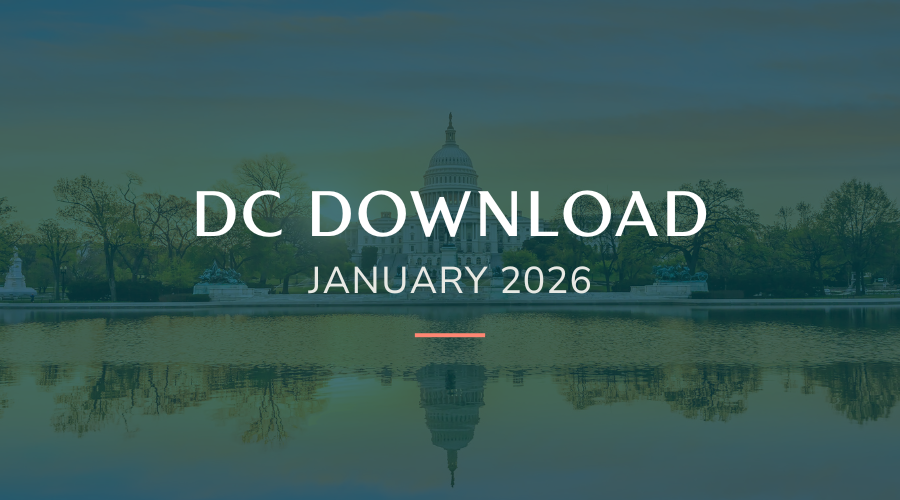Independent Sector recently released public polling results reflecting the views of registered voters on a wide range of topics related to nonprofits and public policy. These findings demonstrate strong public support for policies that can help nonprofits weather economic challenges and continue to serve communities.
Nonprofits address urgent needs in their communities every day, but nonprofits are also facing a significant challenge of their own that can impact their ability to fulfill their missions and serve others.
According to Giving USA 2023, giving declined 3.4% in current dollars (10.5% in real dollars) between 2021 and 2022. This is significant when considering historical charitable giving trends. For instance, the only times in the past 40 years when total charitable giving decreased (in current dollars) were in 1987, 2008, and 2009. Research indicates this decline is driven by inflation, which contributes to the reduction of new donors, low donor retention, and an increased reliance on large donations. The Fundraising Effectiveness Project (FEP) warns that this reliance on large donations, such as those from major donors (those donating more than $5,000) or foundations, makes the sector more susceptible to stock market fluctuations.
The economic conditions in 2022 had an impact on donors. Recent IS polling finds that voters are still concerned with 74% saying inflation, the cost of living, and improving the economy are the most important issues to them and their families. Recently released FEP data from the first quarter of 2023 reflects these concerns, finding a 10% decrease in donations from major donors, a 20% drop in donor retention, and a decline of almost 20% in the number of new donors. They stress the need for nonprofits to diversify their funding base and build grassroots support.
Here are three actions policymakers can take to ensure nonprofits can effectively engage donors at the grassroots level so they can serve more people and do more good at a time when it’s needed the most.
- Restore and expand the universal charitable deduction. There is strong public support (87%) for restoring the charitable deduction, with support from 90% of voters who list inflation as one of their most important issues and 88% of voters with annual incomes below $50,000.
Voters overwhelmingly support (82%) expanding the charitable deduction to $4,500, including over 80% of Republicans, Democrats, and Independents. Over half of voters (53%) would give more if they were able to claim the charitable deduction, including 58% of voters with annual incomes between $50,000-$70,000, 61% of Black voters, and 69% of Hispanic voters.
The Charitable Act (S. 566/H.R. 3435), which has bipartisan support in the House and Senate, would establish an expanded deduction.
Ask your legislators to support The Charitable Act.
- Clarify the rules around nonpartisan advocacy and civic engagement. Voters across political parties overwhelmingly support charities educating policymakers about the needs of the communities they serve (R: 91%, D: 91%, I: 88%). Nearly 8 in 10 voters (78%) think it is a good idea for charities and other organizations to help members of their communities vote, compared to only 8% who think it’s a bad idea. In fact, voters would be more likely to donate to an organization that advocates for their community (66%) or helps members of their community vote (54%). The public clearly wants nonprofits to participate in advocacy and civic engagement with and for the communities they serve.
Unfortunately, significantly fewer nonprofits know the advocacy activities they can legally do today, compared to 20 years ago. This is due — in part — to a lack of clear and understandable rules about what is allowed and what is appropriately prohibited. Seven in 10 voters (71%), including over two-thirds of Republicans (68%), Democrats (73%), and Independents (74%), support policies that keep in place the ban on nonprofits endorsing candidates and political parties and establish a clearer definition of what nonprofits are and, rightfully, aren’t allowed to do.
See Independent Sector’s recent comments to the House Ways and Means Committee for more information on this issue.
- Pass the Nonprofit Stakeholders Engaging and Advancing Together (Nonprofit SEAT) Act of 2023. Despite the scale and unique understanding of community needs, nonprofits are often on the “outside looking in” when federal policies are decided. While they are the “frontline” in making communities vibrant and more equitable, their voices aren’t always heard by policymakers. The Nonprofit SEAT Act would establish permanent, structural mechanisms for the nonprofit sector to help inform and improve federal policy, while expanding opportunities for the government to work more effectively with the sector to achieve shared goals. It also contains some key policy changes that would improve data about the impact of nonprofits, strengthen national service, and make it easier for nonprofits to raise charitable donations nationwide.
The government already relies on nonprofits to administer programs and provide services. Bringing nonprofits to the table creates an opportunity for nonprofits and government to collaborate and strengthen their partnership. And the voters agree — 85% of voters think that the government could better collaborate and solve challenges facing local communities if nonprofits had an official seat at the table, including at least 80% of Republicans (83%), Democrats (89%), and Independents (82%).
Learn more about the Nonprofit SEAT Act and add your nonprofit organization to the list of endorsers today.
TargetPoint Consulting conducted a survey of 1000 interviews among registered voters nationwide. Interviews were conducted August 18-23, 2023 with a margin of error of +/-3%. The survey was conducted using web-based interviews and was weighted to reflect nationwide demographics including gender, age, race, education, and 2020 Presidential vote.
Emily Rogers is Manager, Policy Research at Independent Sector.



